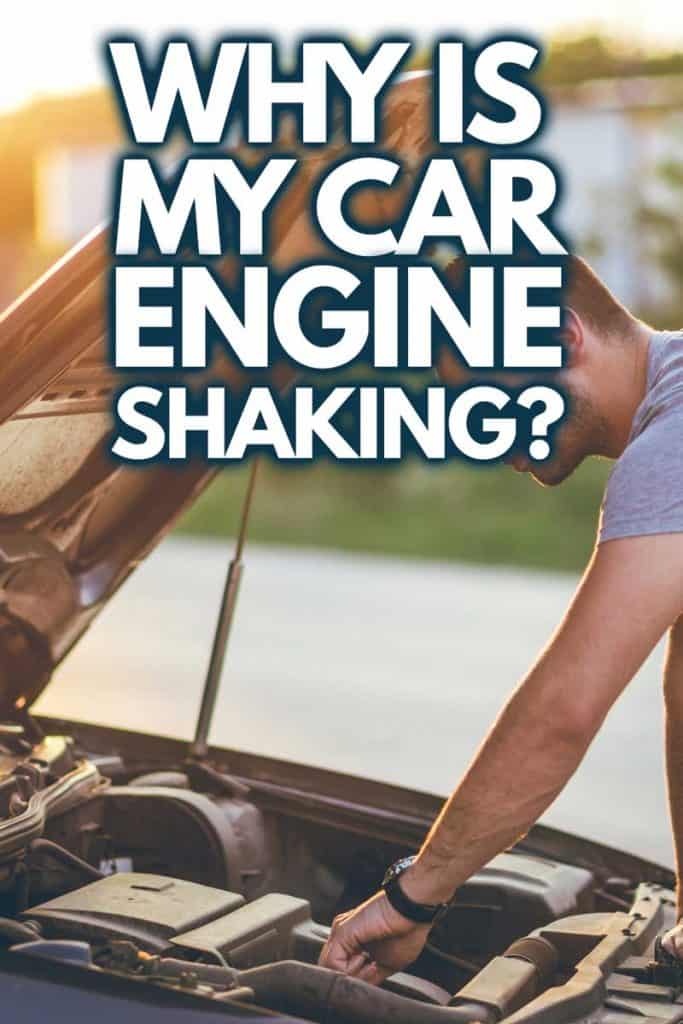 Car engines always shake when they are running. If excessive vibrations are making their way into the cabin, it could mean there is something wrong with your vehicle. This issue is especially real if your car once ran smoothly, but is now shaking your fillings out. Wondering why your car engine is shaking? We have scoured some of the best resources on the internet to compile a list of the common issues that can cause this to happen.
Car engines always shake when they are running. If excessive vibrations are making their way into the cabin, it could mean there is something wrong with your vehicle. This issue is especially real if your car once ran smoothly, but is now shaking your fillings out. Wondering why your car engine is shaking? We have scoured some of the best resources on the internet to compile a list of the common issues that can cause this to happen.
Here are the most common causes of engine vibration:
- Bad sparkplugs
- Broken motor mounts
- Bad belts
- Broken hoses
Of course, there are hundreds, if not thousands, of other reasons your car might be shaking. Exploring every single one is impractical, so we will stick to the most common as we help you identify what your exact issue is.
Causes of Engine Vibrations
Let's take a closer look at the issues mentioned above.
Faulty Sparkplugs
.This is the most common cause of engine shaking. If one or more of your sparkplugs is bad, it can cause your engine to misfire. This means that the proper detonation is not occurring in the cylinder of the faulty sparkplug. Because engines are engineered to offset the detonations in each cylinder, a misfire will create a shaky engine.
Broken Motor Mounts
Your motor mounts are what holds your engine inside the engine bay. These mounts help absorb the natural vibrations of your engine and protect you and the rest of your car from feeling them. And like any other park, they can become broken or loose, which will send the shakes right into your vehicle.
Broken or Faulty Belts
If the timing belt or any other belt in your engine becomes damaged, loose, or broken, it can result in a shaking sensation in your vehicle. That's because whatever the belts are powering will no longer be rotating smoothly. So, if you have a belt-driven fan that is now somewhat off of its regular smooth rotation, your vehicle will feel those vibrations.
Broken Hoses
Like belts, hoses are rather easy to check. If you notice any broken or disconnected hoses in your engine bay, this is another likely cause of your bad vibrations. While the problems caused by a loose vacuum hose can be worse (losing power or stalling), one common symptom is engine vibration.
Why Does My Engine Shake When My Car is Stopped?

If your engine vibrates while idling (when your vehicle is stopped, but the engine is running), it could mean you are experiencing any of the following issues: bad Sparkplugs bad fuel intake system, broken or disconnected hoses, or broken or damaged belts.
These are the leading causes of engine vibration that will manifest when you are idling. Some other reasons may sort themselves out or become unnoticeable once you are on the move.
Why is My Engine Losing Power?
Perhaps you have noticed a loss of power to go along with your engine's shivers. While that might sound like a bad omen, in reality, often the fix for this problem is relatively easy and inexpensive. Here are some of the most common culprits:
Fuel System Issue
Your fuel system delivers fuel to the engine, so it makes sense that any issues within this system - whether it's a clogged injector, dirty filter, or leak - will cause your engine to lose power. A problem with your fuel system will usually show up as a noticeable drop in power any time you try to accelerate. A lousy filter, meanwhile, will often show up as cutting out our sputtering sensation while driving uphill.
Spark Plug Issue
Aging or dirty spark plugs can also make for a sluggish car. These plugs are responsible for creating the spark that ignites the fuel/air mixture inside of your engine's cylinders. This explosion is what pushes the pistons, causing them to generate the power that moves your vehicle.
It makes sense, then, why anytime that combustion event fails to happen entirely or on time, you will notice a loss of power. Vibrations and black smoke coming from your tailpipe can also be a sign. Spark plugs wear out eventually, so this is a great place to start looking anytime you are diagnosing problems with vibration.
Loss of Compression
As a followup to our previous section about combustion, this section deals with a loss of compression inside the cylinders. If too much of the air/fuel mixture escapes before the spark plug ignites it,
Bad PCV Valve
As part of your emissions control system, the positive crankcase ventilation (PCV) valve is responsible for recycling some of the exhaust gases produced by your engine. When the malfunction, these PCV valves can cause too much of that recycled air to rush into your engine's cylinders. This, in turn, can create poor combustion. Your "check engine" light will usually illuminate if this is happening in your engine.
Why Does My Engine Shake When I Start the Car?

Okay, so maybe your engine usually is excellent, but it shakes when you start it up in the morning. A common reason for this is poor fuel pressure. If there is a leak anywhere in your fuel system - either in the fuel tank, pressure regulator, or fuel injector - it can create a loss of pressure after your vehicle sits for a while. That loss of fuel pressure means you won't have perfect combustion in each cylinder upon startup. You can try to look for a leak under your car to find out if this is your problem.
Of course, there are several other reasons your vehicle might shake upon starting. If it is not a fuel pressure issue, you will likely need to bring your car to a mechanic for diagnosis.
Why Does My Engine Shake When I Accelerate?
Bad motor mounts are a likely cause of vibration while accelerating. Once these parts are no longer doing their job, the natural vibrations made by your engine will be easier to feel from the driver's seat. And that explains why the vibrations would get worse under acceleration when your engine is pumping away.
Bad spark plugs and disconnected/broken hoses can also lead to vibrations under acceleration.
Note that there are many other non-engine-related causes for shaking while accelerating: broken CV joints, unbalanced tires, a bent axle or driveshaft, or loose lug nuts. If you can tell where the vibration is coming from, it can significantly help to diagnose the problem.
Smooth Sailing Ahead!

Once you locate the cause of your shaking and baking, you should be able to determine if this is a "DIY" or "take it to the shop" type of problem. Either way, it is essential to get the issue resolved before it becomes worse, causes more problems down the road, or, worst of all, results in an accident. Let's hope that you can find the root cause of your shakiness without too much trouble and once again experience the smooth ride your vehicle was engineered to give you.
